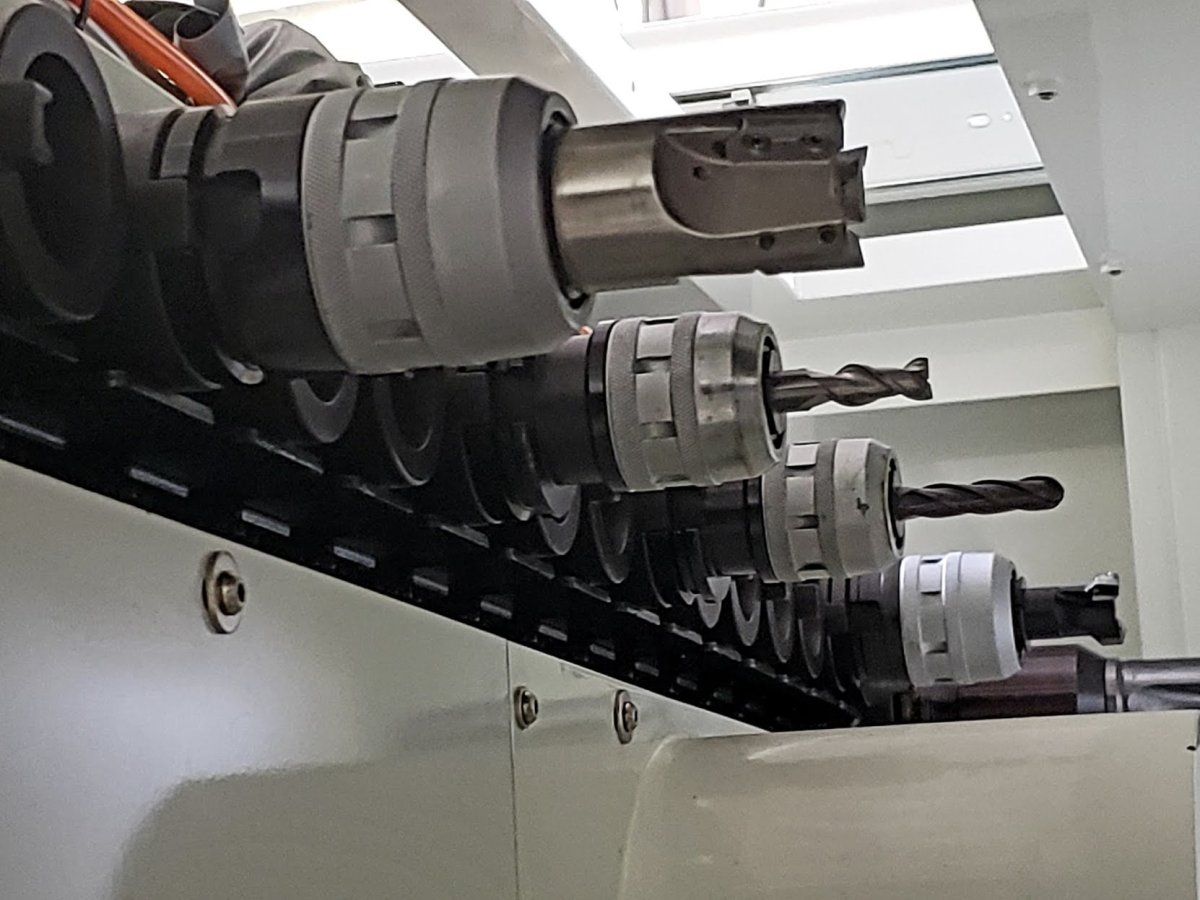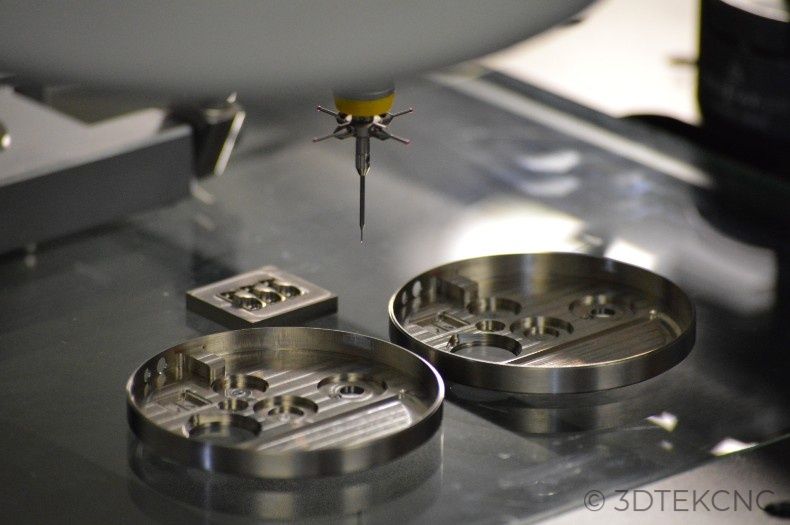
As we plunge into the 4th generation of industry, a.k.a. Industry4.0, machining is still alive and thriving! New development in 5-Axis machining technologies are paving the way for some very impressive and unmatched fabrication capabilities. Thinking of utilizing one of these in the near future? Below are some age old thoughts on selecting the right material for your machining needs.
Where to start?
The following two materials are super standard and are popular for fixture design. They are affordable and durable, hence they are often the first two materials to consider when setting out to design a fixture.
Delrin
Also known as Acetal or POM (Polyoxymethylene), Delrin is a durable plastic that's very easy to machine, and is a default material for fixture design. This material can easily handle tolerances down to ± .002", which is plenty robust for a majority of your part needs. Delrin is a trademark of DuPont.
Cases where Delrin may not work:
- Your part will see high temperatures (over 300°F)
- Your part will see high stresses
- Your part touches static sensitive electronics
Although, there are static dissipative versions available
Aluminum 6061
Aluminum is another great choice that is durable, light weight, affordable, and easy to machine. You can also easily achieve tolerances down to ± .002". Aluminum can handle very high melting temperatures, well over 1000°F, just be careful not to touch it!
A drawback to aluminum is that it's pretty messy in its raw form. If you rub your finger across it, your finger will start to turn grey. Hence, aluminum often needs to be anodized, which will harden the surface and keep your part clean.
Cases where aluminum may not work:
- Your part will see very high stresses
Aluminum is a soft metal - Your anodized part touches static sensitive electronics
To eliminate static, try electroless nickel plating instead - When cleanliness matters
Even coatings eventually wear, and then corrosion of this material can become a problem
Where to continue if the above aren't right?
So, you have some special requirements. Let's walk through them to see if we can find the right alternative.
In need of strong and heat resistant plastics?
Plastics are great, as they are light, durable, and often resistant to most corrosion. Here are some great and upgraded alternatives to Delrin.
Ultem
Also known as PEI (Polyetherimide), Ultem is a light weight and very strong plastic that can withstand temperatures over 300°F. It's more expensive than Delrin and Aluminum, but still relatively affordable and easy to machine. Ultem is a tradmark of SABIC
PEEK
PEEK (Polyetheretherketone) is light weight and stronger than Ultem. It can withstand temperatures over 600°F, and is also easy to machine. This material, however, can be quite expensive and is often an overkill for most projects. That said, it makes for a great material in Aerospace, where weight and durability matter. It's also popular for medical device implants, for its strength, durability, and biocompatibility.
Looking for some strong, corrosion resistant metals?
Sometimes you need some good old steel to get the job done! Stainless steels are very strong and can be clean and corrosion resistant. They are heavy and harder to machine than most of the above materials, but are appropriate when you need the strength. These materials will cost more to machine than Aluminum due to the material hardness.

Stainless 302/304
This is a popular grade of stainless, and decently corrosion resistant. It's super strong and super heavy.
Stainless 316
Another popular grade of stainless that's even more corrosion resistant. It's also super strong and super heavy.
Stainless 17-4
Another popular grade that's also very corrosion resistant, and of course strong and heavy.
Stainless 17-4 is also magnetic, which can be helpful to leverage, if you want to integrate anything involving magnets.
Need a light weight but strong, corrosion resistant metal?
Titanium may be a great choice. Though a little more pricey, titanium is a very strong and light weight option, with excellent machinable properties.
Titanium Grade 5
As a popular titanium alloy, grade 5 titanium is great for machining, and very commonly used when strength and weight matter.
Titanium Grade 2
Titanium grade 2 is another popular option and is pure titanium. It's strong, light weight, easy to machine and popular for welding applications.
Want some conductivity (heat or electrical)?
Some applications may need some good conductivity. Here are some options that could get the job done. They are generally clean, but may require some maintenance or measures to help with corrosion over longer periods of time.
Brass
Brass can offer good heat and electrical conductivity. Brass is relatively easy to machine and can be a cost effective choice.
Copper
Copper can be a decent choice when in need of good electrical conductivity, however can be more expensive and a little harder to machine.
Need something else?
While the above can handle almost any of your design needs, there are always some niche requirements that need special attention. If you have any of these, feel free to comment below!
Subscribe to SendCnC
Get the latest posts delivered right to your inbox

